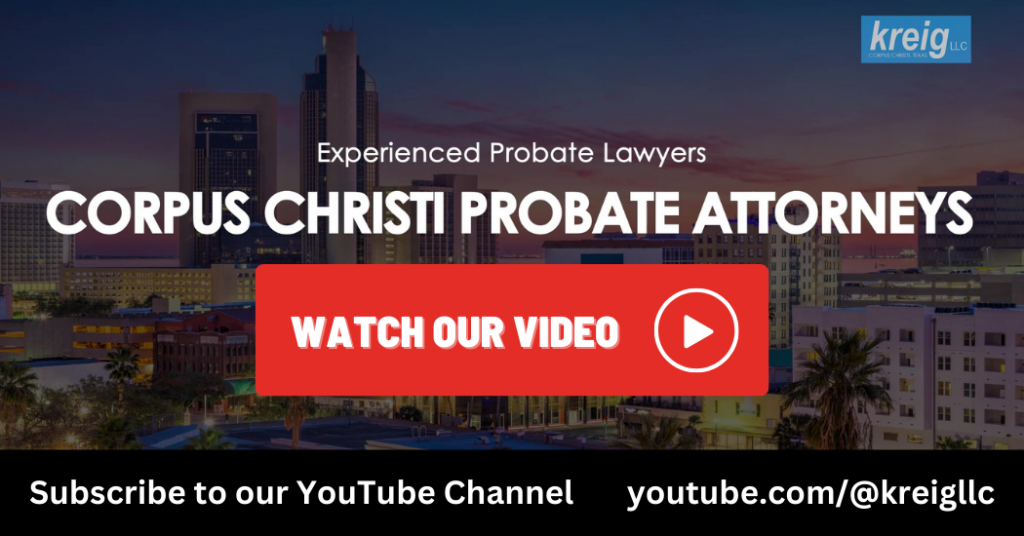In Texas, if you want to contest a will or trust on the grounds of undue influence, you must be able to show that the person who created the document was unduly influenced by another person. This can be a difficult burden to meet, but it is not impossible. If you suspect that someone unduly influenced the person who created your will or trust, you should talk to a probate lawyer. An experienced lawyer can help you gather the evidence you need to prove your case in court.
What is undue influence in a Texas Probate matter?
In a Texas probate court, undue influence is defined as “a predominant and controlling influence over the testator’s (person making the will) mind, emotions, or will that caused the testator to do something they would not have done but for the influence.” In order to show that undue influence occurred, there must be evidence that:
- The person exerting the influence had a relationship with the testator that resulted in them having a position of power or trust over the testator.
- The person used that position of power or trust to coerce, manipulate, or otherwise exert a controlling influence over the testator.
- As a result of the undue influence, the testator made a will that was not their true wishes, or changed an existing will in a way that was not their true wishes.
If you suspect that someone exerted undue influence over your loved one in connection with their will or estate planning, it is important to speak with an experienced probate attorney who can help you gather evidence and build a strong case.
The burden of proof in Texas Probate Court
In Texas, the burden of proof to show that a person was unduly influenced by another person in order to gain an advantage in a probate proceeding is high. The court must find that the person who allegedly exerted the undue influence had:
- A relationship with the person over whom they exerted the influence;
- A motive to gain an advantage in the probate proceeding; and
- The ability to exert undue influence over the person.
The court will also consider whether the person who was allegedly unduly influenced took any actions that would indicate they were under duress or coercion. For example, if the person changed their will shortly before they died, or if they transferred property to the alleged Influencer during their lifetime, this would be viewed as suspicious behavior.
If the court finds that there was undue influence, it can void any documents that were executed as a result of the influence and award damages to the party who was unduly influenced.
Types of evidence that can be used to show undue influence
There are four types of evidence that can be used to show undue influence in a Texas Probate Court:
- Confessions: A confession is an admission of wrongdoing. It can be used as evidence of undue influence if the person confessing was influenced by another person to confess.
- Coercion: Coercion is when someone is forced to do something against their will. It can be used as evidence of undue influence if the person was coerced into doing something they would not have otherwise done.
- Threats: Threats are when someone is threatened with harm if they do not do what the person making the threat wants them to do. It can be used as evidence of undue influence if the person was threatened into doing something they would not have otherwise done.
- Promises: Promises are when someone is promised a reward for doing what the person making the promise wants them to do. It can be used as evidence of undue influence if the person was promised something they would not have otherwise been given in exchange for doing what the other person wanted them to do.
Examples of cases where undue influence was found
In order for a court to find that undue influence was used in a particular case, there must be clear and convincing evidence that:
- The person who allegedly exerted the undue influence had a relationship with the person who is said to have been influenced;
- The person who allegedly exerted the undue influence used their relationship to coerce or convince the other person to do something against their wishes or better judgment; and
- As a result of the coercion or persuasion, the person acted against their wishes or better judgment and did what the other person wanted them to do.
There are many different types of relationships that can give rise to a finding of undue influence. For example, a parent-child relationship is often thought of as one where there is a great deal of trust and authority given to the parent. As such, if a parent were to use their position of power and authority to convince their child to do something against their will, such as sign over an inheritance, a court could find that undue influence was used.
Other relationships where courts have found undue influence include those between spouses, siblings, friends, caretakers and others in positions of trust or power.
Lowrey v. Saunders
666 S.W.2d 226, 234 (Tex. App. – San Antonio 1984, writ ref’d n.r.e.)
Facts & Procedural History
In April of 1978, Bessie Cooke Cato (Testatrix) executed a warranty deed that conveyed her San Antonio home to Appellees after her passing. The deed authorized Testatrix to continue using the home during her lifetime. The same day, Testatrix entered a contract with Appellees that stated she would not alter the provisions of her April 1976 will that referenced Nancy Adele Saunders (Appellee). In June of 1979, Testatrix filed a petition in the District Court to have the deed and contract invalidated. The District Court held that both the contract and deed were valid. Later that month, Testatrix executed a will supported by Lowrey (Appellant) that eliminated Appellee from the will.
In January of 1980, Testatrix passed away. The following day, Appellees filed their application to probate Testarix’s 1976 will and 1977 codicil. The 1976 will: (1) appointed Appellees as co-independent executors; (2) devised/bequeathed Testatrix’s home to Appellee Nancy Saunders; and (3) eliminated Appellant but gave certain property interests to Appellant’s daughter. The week after Appellees filed their application, Appellant filed an application to probate Testarix’s 1979 will. Appellant opposed the admission of the 1976 will and 1977 codicil, stating that the 1979 will revoked the previous will. Appellees opposed the 1979 will contending that: (1) all other wills executed between 1977 and 1979 were the product of undue influence by Appellant and others; and (2) that Testatrix lacked testamentary capacity to make these later wills.
Both Appellant and Appellees requested letters testamentary from the District Court declaring them as independent executors of the estates (in accordance with the terms of their preferred wills). The District Court held that: (1) Testatrix did not have the testamentary capacity necessary to execute the 1979 will; (2) Testatrix was acting under undue influence when the 1979 will was executed; and (3) Testatrix’s 1976 will was entitled to probate. Appellant appealed, and the Court of Appeals affirmed the judgment of the District Court. The Court of Appeals determined that sufficient evidence existed to suggest Testatrix did not have testamentary capacity (namely Testatrix’s inability to recognize the full extent of her property and possessions). As for undue influence, the Court of Appeals articulated that the evidence showed that Appellant had exerted such an influence on Testatrix, and that this type of finding was appropriate where a testator was suffering from an impaired mental condition. The Court of Appeals lastly stated that the record supported the District Court’s ruling in admitting the 1976 will.
Main Considerations
What is required to show undue influence?
The party contesting a will bears the burden of showing that a testator experienced the undue influence of another person. Circumstantial evidence (evidence of events before or after the will was executed) is admissible to show undue influence at the time of a will’s execution.
How can a will be revoked?
A written will may be effectively revoked by the execution of a subsequent will, codicil, or written declaration. However, for this to be successful, it must be shown that the testator was: (1) of sound mind when the subsequent document was executed; (2) that the testator intended to revoke the original document; and (3) that the subsequent was executed correctly.
The Takeaway
Lowrey v. Saunders shows that, where a testator is unable to recognize the extent of their estate and possessions at the time of a will’s execution, they will likely not be deemed to have testamentary capacity.
Conclusion
To show undue influence in a Texas Probate Court, the person challenging the will must prove that the deceased person was influenced by another person to the point where they would not have made the decisions in their will if it were not for that other person. This can be a difficult thing to prove, but if you have evidence that someone exerted a significant amount of control over the deceased person’s life, it may be worth pursuing in court.
Do you need an Experienced Probate Attorney to help?
When a person dies, their estate must go through the probate process in order to be distributed to their heirs. If there is any dispute over the distribution of the estate, or if there are claims of undue influence, then an experienced probate attorney can be extremely helpful.
In order to show that someone exerted undue influence over the decedent, there must be proof that they used their relationship to coerce the decedent into making decisions that were not in their best interest. For example, if a son convinced his elderly and frail mother to change her will in his favor, that could be considered undue influence.
If you are involved in a probate dispute where undue influence is alleged, it is important to have an experienced attorney on your side who can help you navigate the complex legal issues involved.




